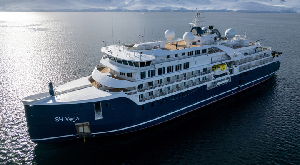Diasporia News of Saturday, 6 March 2004
Source: Kwabena Owusu Ampong
Commemoration of Independence Day in Norway
As part of activities to mark Ghana?s Independence Day celebrations in Bergen, Norway; a talk event was held for the Ghanaian community in Bergen on the 5th of March to precede the actual Independence Day celebrations. The theme of the talk was ?Foreign Direct Investments (FDI) into Developing Countries. A look at Ghana??
Kwabena Owusu Ampong, a Master?s degree student at The Norwegian School of Economics & Business Administration gave the talk. The gathering was mainly the members of the Ghana Association in Bergen. It can be remembered that on the 28th of October 2003, Kwabena O. Ampong took part in a Business Forum to promote investment opportunities in Ghana to Norwegian Businessmen.
Delivering his presentation, Kwabena Ampong stressed that the new global economic outlook makes it imperative that Ghana?s speedy development will depend on adequate FDI. One-third of global trade is on intra-firm basis, and another one-third on inter-industry basis. This means that two-thirds of global trade is in the hands of the private sector, and more specifically through the activities of multinational corporations (MNCs). Since MNCs account for more than 80% of global FDI, the surest way for developing countries to move out of the spiral of poverty and the ever worsening terms of international trade is by being a favoured inward recipient of FDI from MNCs. He noted that although Global FDI was about $653 bn last year, only $14 bn came to Africa, of which Ghana was among the 20 most preferred destinations for FDI in Africa.
According to Kwabena, Ghana receives less than 1% of the FDI into sub-saharan Africa, with Angola, being the biggest receiver, followed by South Africa, Nigeria etc. He also noted that currently, 70% of FDI in business and investments in Ghana are from loans; and this he said is not sustainable since FDI should come from capital imports through the stock exchange, equity, mergers or from activities of MNCs. He said that political risk and instability seems to be the most important deterrent to inward FDI to Africa. Among some of the other reasons Kwabena gave to explain the low inward FDI are; absence of all forms of infrastructure, including physical, institutional, and legal, extending to the rule of law; lack of skilled labour; cost side reasons and demand side reasons (very small markets).
Kwabena noted that the current democratic dispensation in Ghana was internationally respected and the political stability in Ghana now is not questionable. Ghana is also one of the most peaceful nations in Africa. Also, the GIPC Act of 1994 (Act 478) promotes, supports and protects investments. The current political administration has also embarked on aggressive moves to put the macro-economic environment right. He said the dividends from these have been the increase in FDI from about $64.13 mn in 2002 (low level also due to impact of Sept. 11, 2001 attacks in US) to $118 mn in 2003. Provided the current economic environment could be sustained and improved upon, Kwabena was optimistic that areas like Business outsourcing from developed countries (example being FDI in ICT and related businesses), the mining sector and tourism (this has been hampered by security concerns over West Africa) will see massive inward FDI inflows in Ghana over the coming periods.
Kwabena Owusu Ampong
Koampong77@yahoo.com
Norway.










